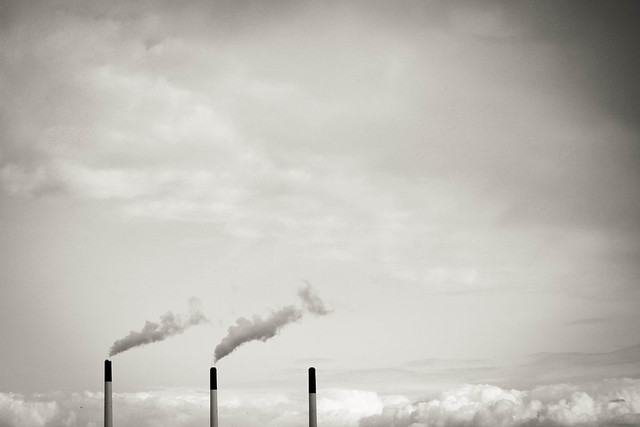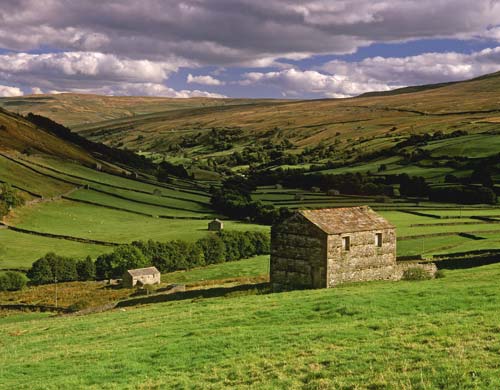Search Results for Tag: economy
Climate Change: The longer we wait the more expensive it will get.

The Potsdam Institute for Climate Impact Research (PIK) recently released a new study that offers two different and probably controversial results. At first the researches say that everything is going to be extremely expensive the longer we wait until political leaders get active. „Global economic growth would be cut back by up to 7 percent within the first decade after climate policy implementation if the current international stalemate is continued until 2030“, the paper says. That‘s an awful lot compared to the 2 percent that are expected if there‘s a climate agreement reached by 2015.
The researchers conclude that it is most relevant to not further postpone mitigation to keep climate targets (the 2 degrees above pre-industrial levels-target e.g.) in reach. “Economists tend to look at how things balance out in the long-term, but decision-makers understandably worry about additional burdens for the people and businesses they are responsible for right now. So increased short-term costs due to delaying climate policy might deter decision-makers from starting the transformation. The initial costs of climate policies thus can be more relevant than the total costs”, lead-author Gunnar Luderer says.
On the other hand Ottmar Edenhofer, he’s the co-author of the study and chief-economist of PIK, formulates a goal that could make it possible to keep the earth’s rising temperatures below the 2 degrees-target mentioned above. But his demands seem to be quite optimistic. At first, he said, a wordwide carbon trading system must reach prices for CO2 emission rights of 20 to 50 Euro (27 to 67 Dollar) per ton. That would be the only way to increase the price of fossil energy sources at a level that could force the industries to switch over to green energy alternatives. Here we should keep in mind that a ton of CO2 is currently traded at just about 3 Euro (4 Dollar) in Europe.
According to Edenhofer especially technologies for carbon dioxide removal from the atmosphere might be required in the future to reach the climate targets. This implies the use of bio-energy alongside wind or solar power, with plants consuming CO2, combined with carbon capture storage (CCS), storing underground the emissions from biomass combustion. The longer it takes to start climate policies the higher is the world’s reliance on these technologies will be, the study adds.
For the study the scientists produced 285 alternative climate change mitigation scenarios, with varying assumptions on the course of international climate negotiations on the one hand and on the other hand the availability of low carbon technologies from solar and wind power to bio-energy, CCS and energy efficiency. For the economic evaluation, they considered indicators like mitigation costs, energy prices or potential financial transfers induced by an international carbon market.
United States and China team up against climate change
Two of the main contributers to global greenhouse gas emissions are working on a collaboration to finally take on the world’s biggest challenge. “Both sides recognize that, given the latest scientific understanding of accelerating climate change and the urgent need to intensify global efforts to reduce greenhouse gas emissions, forceful, nationally appropriate action by the United States and China – including large-scale cooperative action – is more critical than ever”, a statement, both countries released lately, reads.
US Secretary of State John Kerry visited Beijing during his tour through the region. The paper could be seen as a step forward, as both states, the world’s two biggest economies, are business rivals. China describes itself as a developing country, which emits far less carbon per capita and therefore should not have to bear the same burden as advanced economies in tackling the problem.
“By agreeing to raise the issue of climate change and energy policy to the ministerial level … we put on an accelerated basis at a higher level our joint efforts with respect to energy and climate”, US Secretary of State Kerry said. “And I think that globally that will be a very significant step and significant message.”
According to Chinese State Councillor Yang Jiechi , the nation’s top foreign policy official, the two sides would “strengthen practical cooperation” in areas including the economy, energy and environmental protection.
“Such action is crucial”, the statement adds, “both to contain climate change and to set the kind of powerful example that can inspire the world.”
Statements: Jeremy Rifkin, Foundation on Economic Trends
Jeremy Rifkin is the president of the Foundation on Economic Trends, he has written seventeen books on the impact of scientific and technological changes on the economy, the workforce, society, and the environment. GLOBAL IDEAS talked to him about ways to stop global warming, his new economic visions and the way we maybe need to change our way of life.
Indonesian Investment Chief talks to GI on climate change
Gita Wirjawan heads up the Indonesia Investment Coordinating Board. He talked to GLOBAL IDEAS about the impact of climate change on his country and how Indonesia deals with the challenge.
What is Nature Worth?

For the first time, we have a comprehensive idea of nature’s financial worth: the National Ecosystem Assessment
carried out an intensive study of the UK’s natural environment and how it benefits Britain’s economic prosperity. The result: nature is very important to the UK. According to the study, nature provides Britain with tens of billions of pounds in services every year – all for free.
Hundreds of experts in economics, social sciences and ecology worked together to assess different aspects of the UK’s ecosystems across a series of habitats, like woodlands and cities and farms. Those ecosystems provide services like water purification and crop fertilization that are extremely important to an economy, even when we don’t realize it.
The environment ministry says the study will help shape the UK’s environmental policy. But it’s also important to stock of the state of Britain’s natural wealth: 30% of the natural services they studied are suffering because of climate change.
What is nature worth in your country?






Feedback